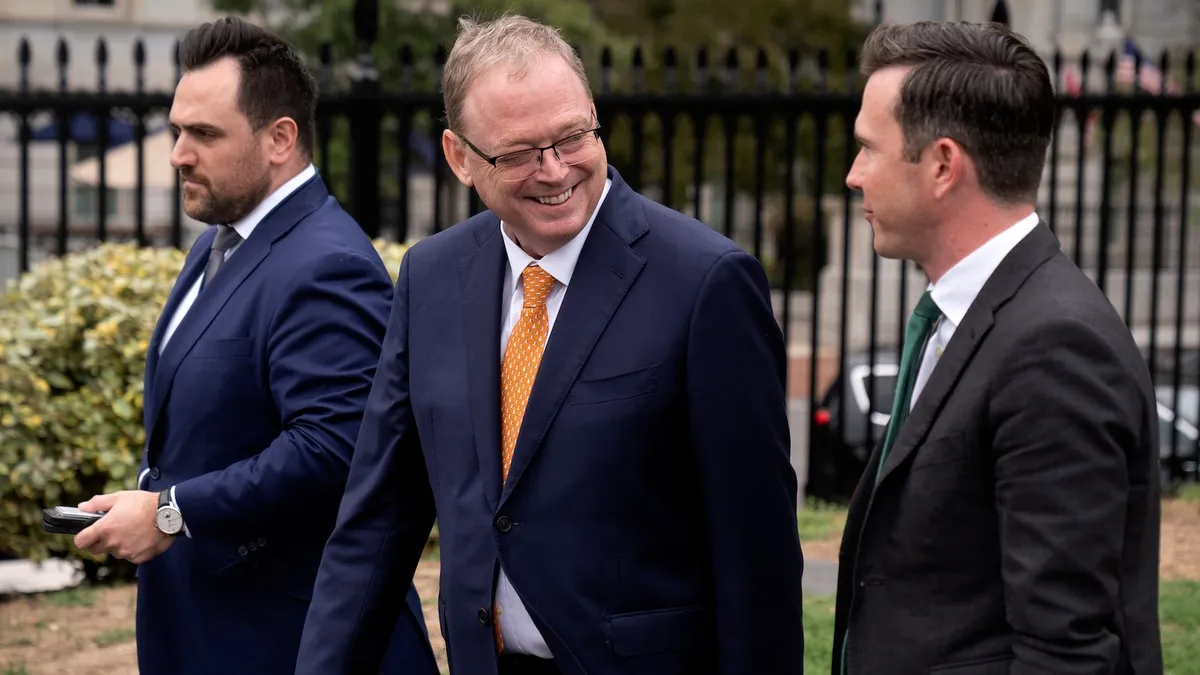
As the government shutdown enters its fifth day, the White House has issued a stark warning regarding potential mass layoffs of federal workers. White House economic adviser Kevin Hassett stated on CNN's "State of the Union" that the threat of layoffs will become a reality if negotiations regarding the shutdown stall indefinitely. Hassett remarked, "If the president decides that the negotiations are absolutely going nowhere, there will start to be layoffs."
Despite this ominous warning, Hassett expressed hope that a fresh start at the beginning of the week could lead to a resolution. He emphasized the need for Democrats to recognize the common-sense approach of avoiding layoffs, indicating that negotiations could yield positive outcomes if both parties are willing to engage.
When questioned about which agencies might face cuts under Trump's proposed shutdown measures, Hassett explained that this was a strategic move to demonstrate the tangible impacts of a shutdown on agencies typically favored by Democrats. He stated, "A Democratic agency would be shorthand for the agencies that generally are the favorites of the Democrats." This tactic aims to apply pressure on Democratic senators who have been resistant to funding discussions.
Senate Majority Leader John Thune echoed the sentiment that the shutdown could persist as long as the Democrats choose to prolong it. During an appearance on Fox News' "Sunday Morning Futures," Thune remarked, "We're at a stalemate… they're the ones — they have the controlling card right now." Meanwhile, Senate Minority Leader Chuck Schumer criticized Republicans for their lack of willingness to negotiate, stating that previous bipartisan agreements have faltered due to Republican intransigence.
In the House of Representatives, leaders continued to engage in a war of words regarding the shutdown. House Minority Leader Hakeem Jeffries characterized Republican behavior during the shutdown as "unhinged," asserting that the American public deserves better leadership. He defended Democratic positions against Republican claims regarding Medicaid for undocumented immigrants, clarifying that federal law prohibits taxpayer-funded health care for undocumented individuals.
Conversely, House Speaker Mike Johnson responded by framing the Democrats' focus on health care as a distraction from the pressing issue of government funding. He emphasized the importance of keeping the government operational to facilitate bipartisan discussions on various issues, including health care provisions set to expire.
Schumer expressed skepticism about Republican commitment to resolving the shutdown, pointing to Trump's social media activity and Johnson's decision to recess the House as signals of disinterest. He argued that genuine negotiations require all key players to be present and engaged, including Johnson and Trump.
In a closing statement, Hassett reiterated that the responsibility to avoid layoffs falls primarily on the Democrats. He called for a "clean continuing resolution" that would allow for an extension of discussions, urging Democratic leaders to step up and demonstrate leadership in this critical time.
As the situation evolves, the potential for a resolution remains uncertain, with both sides firmly entrenched in their positions. The coming days will be crucial as the government seeks to navigate the complexities of funding negotiations while avoiding further disruption to federal services.